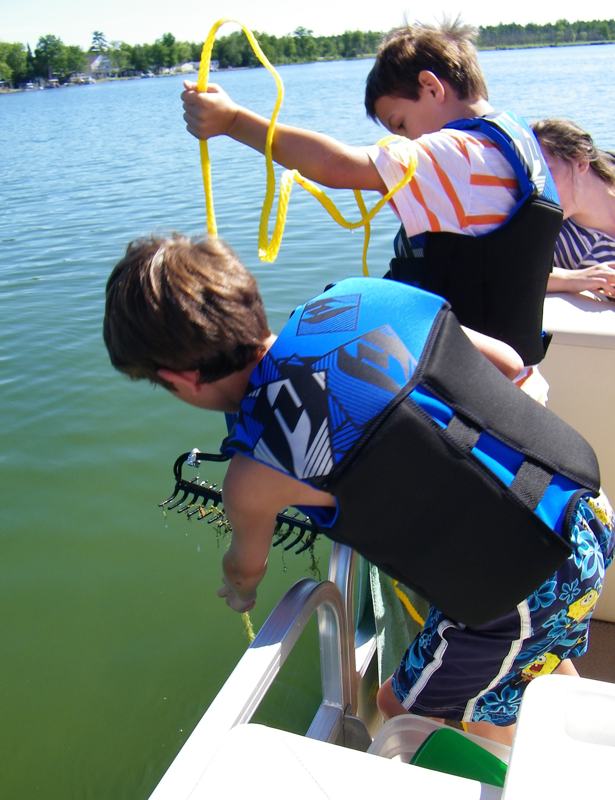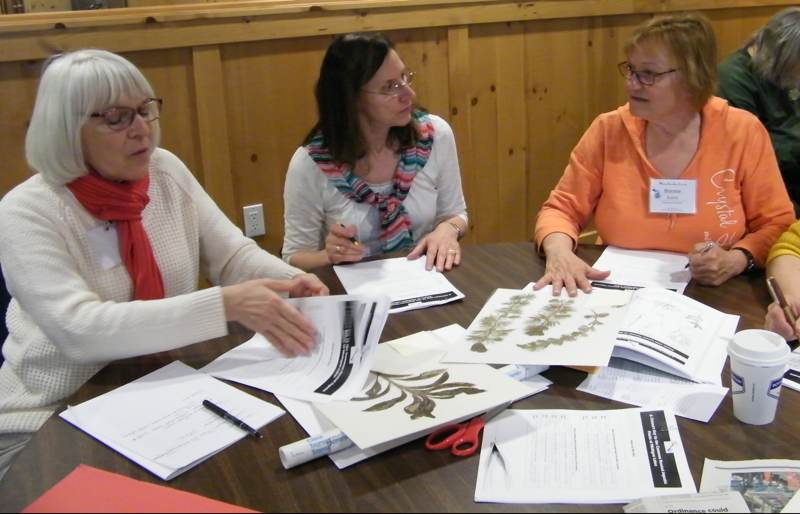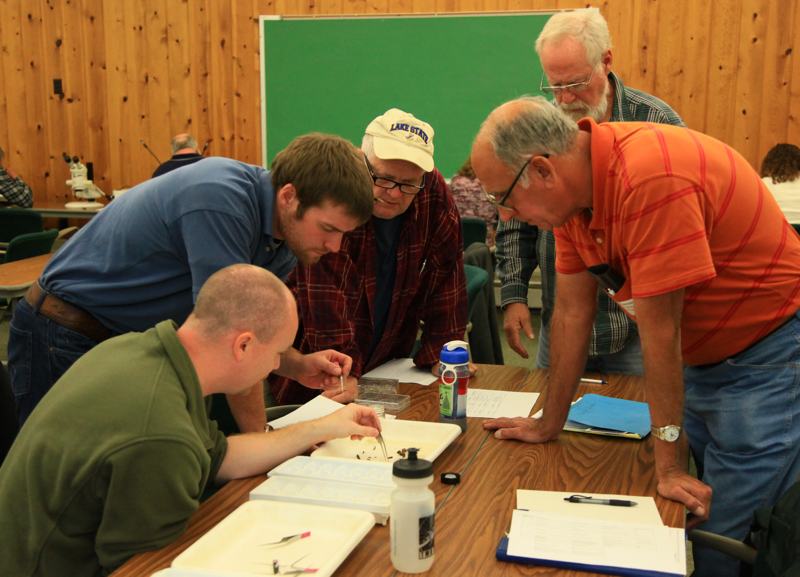Please review the Questions and Answers provided below, and if your question hasn’t been answered contact us at MiCorps@msu.edu.
How long has MiCorps been around?
The Michigan Clean Water Corps (MiCorps) was created in 2004 through Michigan Executive Order #2003-15 to assist the Michigan Department of Environment, Great Lakes, and Energy (EGLE) in collecting and sharing water quality data for use in water resources management and protection programs. However, Michigan has maintained a volunteer lake monitoring program since 1974 (originally known as the Self-Help Program, now referred to as the Cooperative Lakes Monitoring Program or CLMP), making it the second oldest volunteer lake monitoring program in the nation. The CLMP is now a core component of MiCorps (along with the Volunteer Stream Monitoring Program or VSMP).
How can I get involved with MiCorps?

The easiest way to answer this question is to contact one of the MiCorps staff to discuss your particular situation and interests. There are numerous ways to get involved with the program, and we’ll be happy to talk with you!
How do I learn the monitoring techniques?
MiCorps offers training sessions at various times throughout the year. Training for lake monitoring is typically provided each year at the Michigan Lakes and Streams Association (MLSA) Annual Conference or Michigan Inland Lakes Convention. MiCorps holds a training workshop for Volunteer Stream Monitoring Program (VSMP) grant recipients each year in June or July. Space permitting, other interested participants may be able to attend this session.
Advanced lake and stream monitoring training sessions may be offered in conjunction with the MiCorps Annual Conference.
Does MiCorps provide support to groups doing volunteer monitoring?

Yes! MiCorps provides technical assistance, education and training, networking and data-sharing opportunities, and in some cases, financial support through a competitive Volunteer Stream Monitoring Program (VSMP) grants program.
Some of the behind-the-scenes support include staff resources and laboratory analysis of water samples for lake monitoring under the Cooperative Lakes Monitoring Program (CLMP).
Why does MiCorps offer grants for stream monitoring and not for lake monitoring?
As described above, the Cooperative Lakes Monitoring Program (CLMP) requires large amounts of staff support, equipment, and laboratory analysis to administer the program and is heavily subsidized by EGLE to keep the costs of monitoring down for participants. A small fee is required for lake monitors to participate in the CLMP to help offset some of these costs and as in-kind match for the state-supported resources provided by the program (e.g., training, equipment, technical assistance, laboratory analysis, data collection and sharing).
Similarly, recipients of Volunteer Stream Monitoring Program (VSMP) grants for stream monitoring must demonstrate a 25% match for the support received under the grants as required by the authorizing legislation for the program’s funding.
Who can enter data into the MiCorps Data Exchange (MDE)?

For stream monitors, any group with a MiCorps Volunteer Stream Monitoring Program (VSMP) grant (past or present) and anyone who wants to have their monitoring information broadly and publicly distributed may enter data into the MDE. For lake monitors, all Cooperative Lakes Monitoring Program (CLMP) participants are encouraged to enter their data; however, MiCorps staff will be able to assist lake monitors who are not able to enter their own data.
If you are not a VSMP grant recipient or a CLMP participant, more information on who may enter data and the process for doing so is available on our MDE landing page.
I need a username and password to enter my data into the MiCorps Data Exchange (MDE).
If you already have a MiCorps username and password (for example, from CLMP enrollment), please use those to log into the MDE. If you don’t have a username and password, or have forgotten them, follow the instructions on our MDE login page.
Can I list my stream monitoring organization on the MiCorps website?
Yes, if your organization follows MiCorps protocols. Your organization does not have to be a current or past MiCorps grant recipient. Contact us at MiCorps@msu.edu for more details.
How can I find other groups who are already doing volunteer monitoring in my area?
Please visit the MiCorps Directory to search for entities near you.





